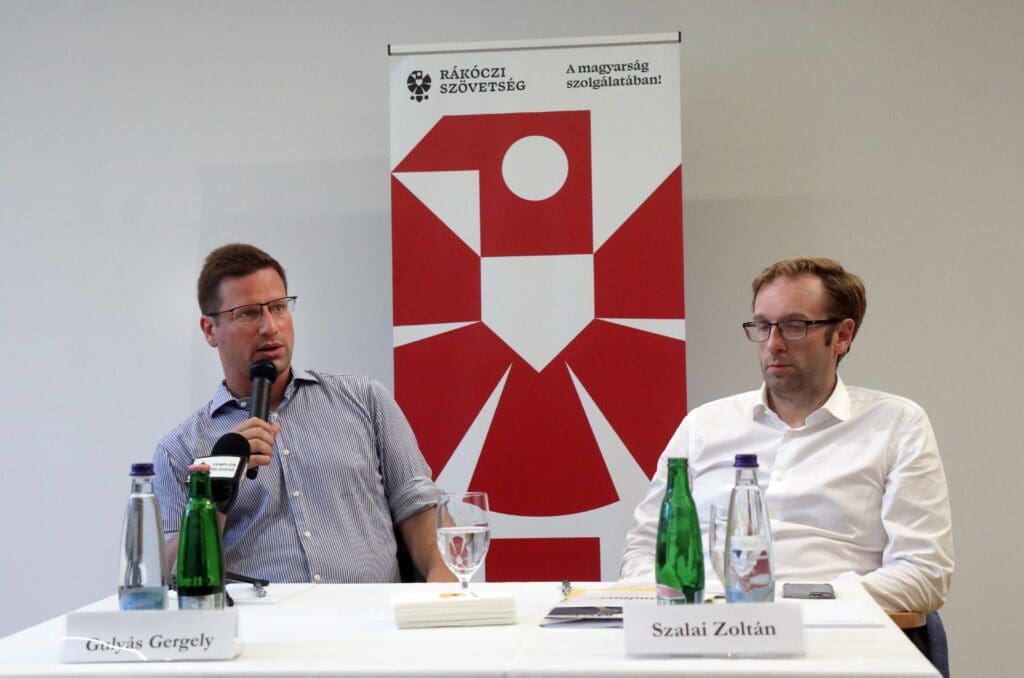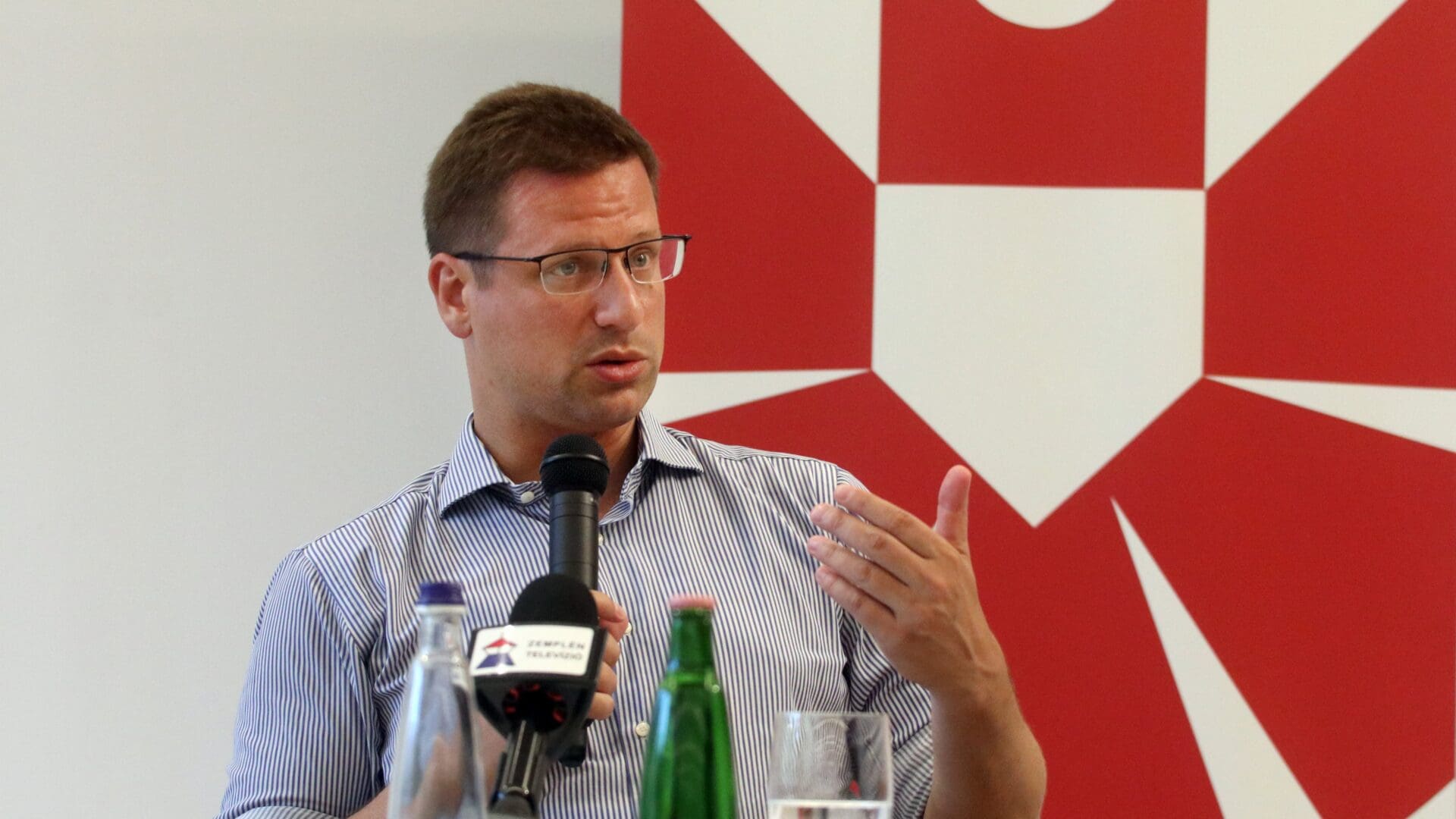The Minister leading the Prime Minister’s Office declared on Saturday, 8 July during a panel discussion at the Rákóczi Free University event in Sátoraljaújhely that the greatest success of the past year was not having to give up any of the fundamental socio-political goals despite the very difficult global economic circumstances, and managing to maintain the country’s security.
Gergely Gulyás explained that since the previous cabinet took office in 2018, numerous changes have occurred in world politics and economy, thus the government elected in 2022 had to face completely different challenges than it did four years earlier. He elaborated that the favourable foreign policy trend for Hungary, which began in 2016, was strengthened in 2017 by the election of Donald Trump as the President of the United States. It was further enforced by excellent cooperation within the Visegrád Group (V4), and by establishing relations with the European Union, and closer relations with larger countries, primarily Germany. The leadership of these countries stood closer ideologically to Hungary than the current incumbents.
This state of affairs fundamentally changed in 2020 with the coronavirus pandemic, followed by the Russo-Ukrainian war with all its economic impacts and uncertainties, the minister explained. He added that these have significantly affected the ‘everyday tasks’ of governance and the burdens that the country had to bear.

When asked by the moderator about the Western countries regularly criticising Hungary’s differing stances on several important issues that require consensus, Gulyás responded that having a different opinion is a matter of attitude. However, more importantly, in recent years, there have been changes in European and world politics that have not been favourable to Hungarians. It started with the US presidential election that brought Joe Biden’s victory, then the newly elected leadership of the Czech Republic and Slovakia weakened cooperation within the Visegrád Group. Additionally, there was the assessment of the Russo-Ukrainian war, which divided right-wing parties and alliances belonging to the same value system, as well as the relationship with Russia, according to Minister Gulyás.
‘The cumulative consequence of these is the reason why—partly seemingly so, partly in actuality—we have fewer allies today than five or six years ago,’ the minister stated. He added that this process can be reversed, and a good example of this is Italy, where a change in government brought victory for conservative parties. He emphasised that in this context, the Polish election is a crucial issue for Hungary, and its importance can only be compared to domestic elections.
‘For us, the result of the current Polish election is much more important than, for example, the result of the Hungarian European Parliament election,’
Gulyás stated, adding that he hopes that Hungary will eventually have more allies within the European Union.
The minister expressed his hope that the government’s resolute stance on the Russo-Ukrainian war will eventually become the majority view in Europe, just like Hungary’s migration policy in 2015, which was considered unique and ‘unorthodox’ at the time.







